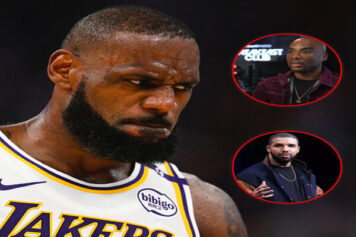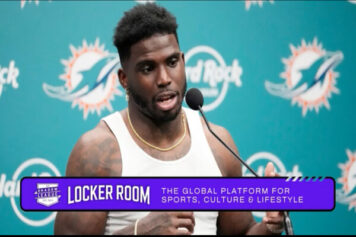There’s a scene early on in The Dark Knight Rises (and btw there are no spoiler alerts in here, so if you haven’t seen it yet, that’s on you) in which the character played by Anne Hathaway, Selina Kyle, whispers into Bruce Wayne’s ear and births this prophetic gem:
“There’s a storm coming Mr.Wayne. You and your friends better batten down the hatches, because when it hits, you’re all gonna wonder how you ever thought you could live so large and leave so little for the rest of us.”
It’s not so much the words she uses, but the sentiment itself that impresses. The anger and vengeance in her tone, the emotion behind the thoughts that render the mind both fearful and curious. She’s speaking specifically of upheaval in Gotham City, in which a criminal enterprise led by a anarchist named Bane seeks to level the playing field between the financial “have and have nots” in a city overrun by greed and opulence. Kyle, err, Catwoman’s speech has an overwhelming populist tone, introducing the main theme of the movie. Namely, the response of the citizenry when power runs amok and leads democracy astray.
This question flows throughout the entire movie as Bane seeks and then succeeds in impacting the city leadership (kills the mayor), destabilizing the prison system (frees all the prisoners in the city jail), rocking the financial system (breaks into the stock exchange and disrupts the market), subduing the police force (traps them underground for months), rearranging the judicial system ( all court proceedings are governed by a form of “street law” in which The Scarecrow from Batman Begins bangs out his own form of justice like a some sort of half-deranged Antonin Scalia) and disemboweling the federal executive branch (he intimidates the President by threat of nuclear bomb).
It’s an unexpected and brave angle for any summer blockbuster to take and director Christopher Nolan’s final piece of his Batman triumvirate is a brilliant semi-apocalyptic tale of income distribution angst. Seeing a movie like this certainly gets the “what if?” juices flowing. Even if you find yourself rooting for the establishment to win in the movie, you still wonder…what if something like this happened? How would I react? It’s unnerving to think of yourself in alignment with the barbarity associated with societal upheaval. At the same time, there’s recognition of the hypocrisies of American life and how things like imbedded prejudice and systematic oppression are real tangible things.
So I sat there enthralled by the acting of Christian Bale and his high-tech vehicles and thought “what would I do?”
The violence brought forth by such an event…I mean, that serious. There are no quiet revolts, no civilized changing of the guard. So what if the revolution isn’t televised? Blood is getting spilled regardless. You want what? Power? Well, wipe the smile off your face and come and take it. That’s the world for which you’d have to get accustomed.
The idea that the powers that be could be toppled and a different paradigm can take hold has existed for ages. Even with that understanding, The Dark Knight Rises is shockingly prescient. Its motivation was surely shaped by the financial sector meltdown in the summer/fall of 2008, but a movie like this takes 2 years to make and, timing wise, it couldn’t be any more spot on. The banking system is now seen by many people as the enemy and Washington itself is due for a reawakening. The notion that government is a negative entity has left the confines of the very far-right wing and crept into larger, more mainstream swaths of the population.
Turn on the television and you see uprising all across the world, most notably last year’s Arab Spring and this year’s civil war (without officially calling it a civil war) in Syria . That’s one of the reasons people bring up the “founding fathers” so much. It’s not only because they contributed to a document that set up the U.S political system, it’s because they revolted against the British empire and started their own country. Revolution – or even ideas about it – is life-affirming. Think about what it stands for – courage, determination, strategy…it’s intoxicating. What Nolan did is blur the line between good and evil. Are the rich unequivocally corrupt because of their power and are the non-rich pure because of their moral compass? Of course not. Not even close.
One of the chief platforms of this year’s upcoming election is the contrast between the have and have-nots, the so-called one percent vs. the 99 percent. I refuse to wholesale buy into this idea, because, in the 99, there are a bunch of smaller percentages. You think the people in the 95th percentile relate to the people in the fourth percentile? It’s all relative to where you want to see yourself and what your life really constitutes. No group is wrong all the time and no group is right all the time. It’s just a political hustle to try and sway your vote. The arguments are devoid of common sense and nuance, so they change it to focus on extremes. Making it go down smooth and easy like baby food is unfortunately how opposition is defined during election season.
One of the ways we’re fed is in discussions about campaign finance. In 2010 changes to the campaign finance laws made it possible for groups to contribute large amounts of money to the candidate of their choice. Put it like this: they got rid of the salary cap and Super Pacs are like the Yankees and the rest of us are the Kansas City Royals.
So far, Super PAC (political action committees) affiliated groups have raised a combined 125 million for Republican presidential nominee Mitt Romney and President Obama’s election war chest. That’s a startling number, almost as if the election is for sale.
It doesn’t matter if you’re on the left or the right, this manipulation of power by small groups of people can only lead to civil unrest. The only question is, what kind of unrest? Who amongst us is ready to take it to the level of Bane? Likely few of us, but the more important questions is why would we even want that?
In the movie, a detective played by Joseph Gordon-Leavitt follows the rules of procedure only to be stymied until he realizes that often “structures become shackles” that don’t allow democracy to truly prosper. At the end of the movie, he quits the force and we learn that his real name is Robin and he will thus assumedly pick up the vigilante mantle of his hero Batman. In contrast, Kyle relinquishes her anti-establishment stance and sides with Batman and the police. There is no explanation as to why, except maybe a convenient love for Wayne; but, other than that, she just seemingly has a change of heart.
That’s why this is a movie, imaginary people can make decisions without consequence or reasoning. In real life, although it’s invigorating to imagine raging against the machine and changing the game, the truth is there’s a better way. Do what you need to do to get into the game, beast it out and change the players and even some rules, but keep the construct intact. Work to make the system work in your favor. Then, once you have the ability, take out all that oppose. Gotham doesn’t need to burn in order for the world to change.
As the movie ended, I considered my role in this and thought of which character I most understood. It wasn’t Batman, Bane, Catwoman or Robin, but, in fact, Commissioner Gordon. Too optimistic to give up completely, but enjoying the fight too much to stop getting his hands dirty.



